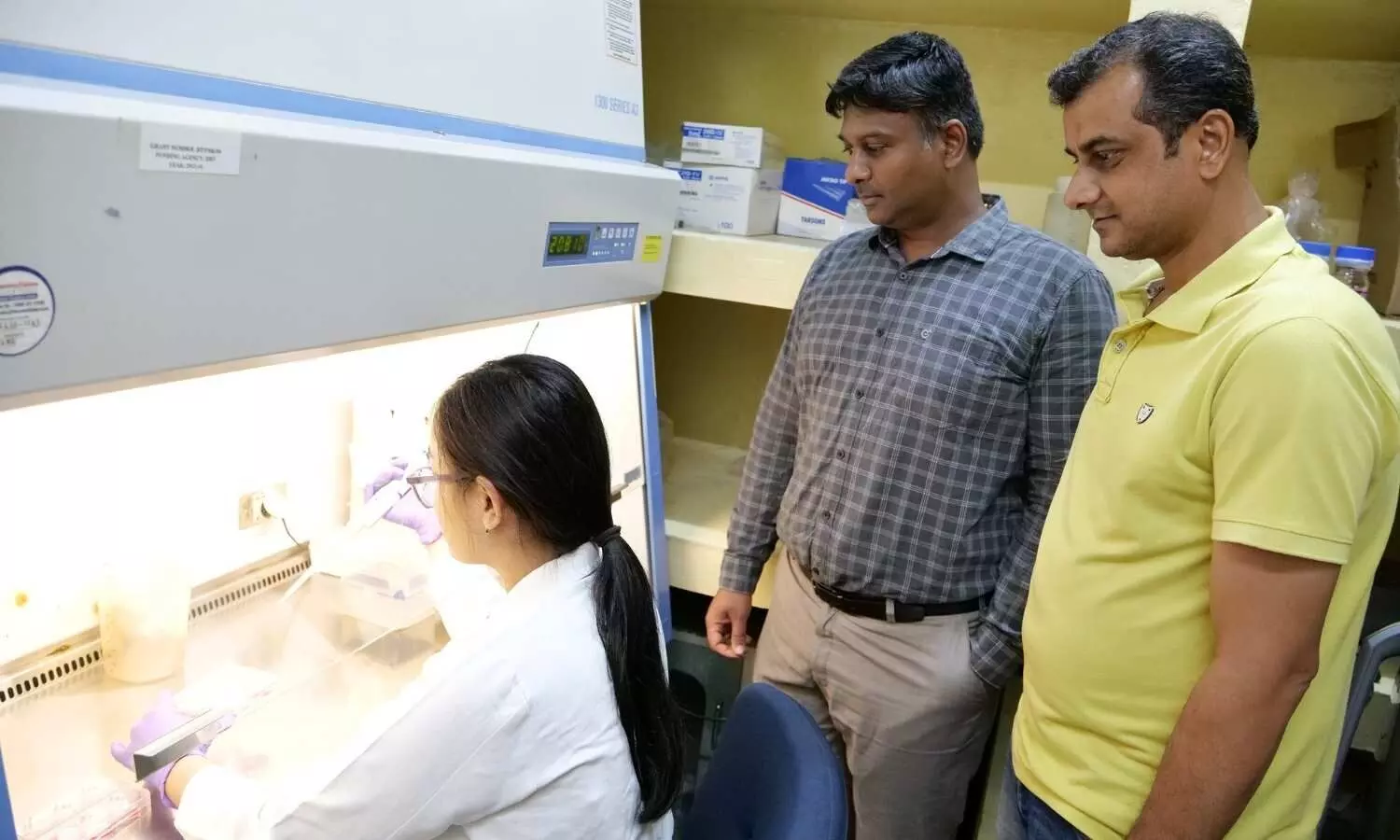IIT Guwahati Develops Low-Cost Clay-Based Method to Detect SARS-CoV-2

Guwahati: Researchers at the Indian Institute of Technology (IIT) Guwahati have developed a new method to detect and measure SARS-CoV-2, the virus that causes COVID-19.
The method is based on sedimentation, the process by which particles settle in a solution, using a mixture of clay, virus, and electrolyte. This technique is intended as a simpler and more affordable alternative to current virus detection methods.
The study has been published in the peer-reviewed journal Applied Clay Science. It was co-authored by Prof T V Bharat (Department of Civil Engineering) and Prof Sachin Kumar (Department of Biosciences and Bioengineering), along with research scholars Dr Himanshu Yadav and Ms Deepa Mehta.
Current virus detection methods include Polymerase Chain Reaction (PCR), which is accurate but time-consuming and equipment-dependent; antigen tests, which are faster but less reliable; and antibody tests, which are only useful after infection.
These limitations become more pronounced in settings with limited resources or during widespread outbreaks.
The IIT Guwahati team explored the use of Bentonite clay, known for its ability to absorb pollutants and heavy metals. Previous research has shown that clay can bind to viruses and bacteriophages.
The team studied how Bentonite clay interacts with virus particles in a saline environment at room temperature and neutral pH.
“Imagine a world where detecting viruses is as simple as watching sand settle in water. That is the breakthrough we have achieved!” said Prof T V Bharat. “Our new method uses clay to quickly identify and measure viruses, like the coronavirus. By observing how the clay settles in a solution, we can determine if a virus is present and how much of it there is. This innovative approach offers a faster, more affordable, and accurate alternative to current methods, paving the way for better disease monitoring and treatment strategies, especially during pandemics. This study is in continuation with our recent studies published in prestigious journals like Langmuir, in developing exclusive biomedical waste facilities for disposing pathogenic waste, sponsored by the Department of Science and Technology, Government of India.”
To test their approach, the team used plaque assays for a coronavirus surrogate and RT-PCR for Infectious Bronchitis Virus (IBV). Results showed that the sedimentation method produced comparable outcomes to these standard tests.
Prof. Sachin Kumar noted, “The use of Bentonite clay in a biologically relevant context offers a unique and underutilized strategy in virus diagnostics. Its ability to bind with viruses makes it a powerful tool not just for COVID-19, but also for other infectious diseases.”
The researchers suggest the method could be adapted to detect other viruses, such as Newcastle Disease Virus (NDV), which affects poultry and has economic implications in the farming sector.
Dr Himanshu Yadav stated, “We aim to take this research from the lab to real-world applications, and for that, clinical validation is essential. Industry partnerships will be crucial in scaling and refining this technology to serve communities across the globe.”
Ms Deepa Mehta added, “This research is a step toward democratizing healthcare technologies. Our clay-based method could be a game-changer in how we respond to future outbreaks, especially in under-resourced regions.”
The team is planning to collaborate with medical institutions and industry partners for clinical trials of this method, focusing initially on SARS-CoV-2 and expanding to other viruses in future studies.


